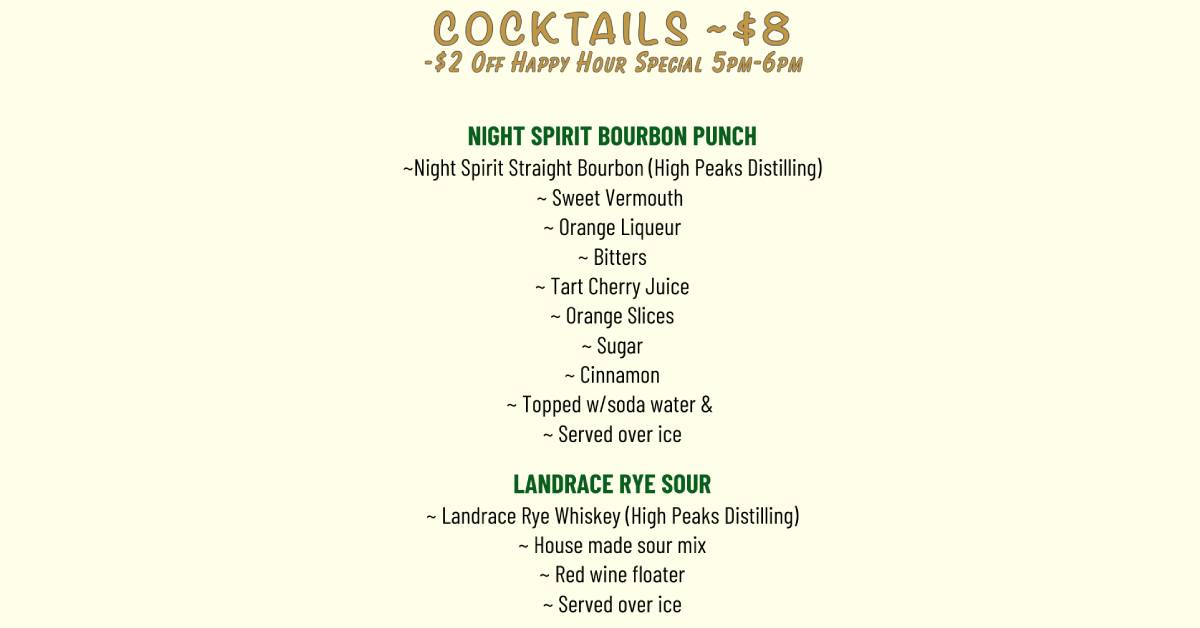Check Out the Top Lake George News, Business Updates, and More
Are you wondering what's new in Lake George NY and the surrounding region? From new business openings to major events, announcements, and more, our team has you covered. Check out some of the latest Lake George news updates below!
Lake George Wednesday Markets Are Back

Mark your calendar for the Lake George Wednesday Farmers Market, hosted by Adirondack Pub & Brewery and High Peaks Distilling!
The market runs every Wednesday from now through August 20 from 3pm to 7pm at 1 Canada Street.

Guests to the market can enjoy free parking, tons of vendors and farmers to browse through, entertainment, tastings, and $2 off happy hour cocktail specials from 5pm to 7pm. Sip and stroll while you shop!
New Railbiking Route Opens in Riparius with Revolution Rail

Revolution Rail has launched their newest railbiking adventure in Warren County, in partnership with the Nature Conservancy!
The new Hudson River Run departs from the historic Riverside Station in Riparius. Guests will pedal along a scenic 6.5-mile round trip that follows along the Hudson River.
In recent years, Revolution Rail has transformed the region into a railbiking haven, as you can railbike from North Creek, Hadley, and Thurman as well.
Find out more at their website: https://www.revrail.com/new-york-railbiking
Shepard Park Getting a Face Lift, New Amphitheater
We all remember when the amphitheater at Shepard Park, used for the various summer concert series, burned down last summer. A temporary stage was erected for 2024. Now, The Lake George Mirror is reporting that Shepard Park will receive funds for a new amphitheater - and more.

The publication reports that Shepard Park will receive "a lion's share" of $10 of revitalization funds promised to Lake George in 2023 by New York State. The project will encompass a new audio/visual structure and a restored and expanded stone amphitheater, as well as a new playground, pathways, lighting, and links to utilities.
The stage is expected to be about 20% larger than its predecessor, but otherwise the plans for rebuilding are mostly keeping the same structure of what was there before.
No timeline has been revealed, although a Sun Community News article from February indicated that construction could start this fall.
Whether or not the new amphitheater will be ready for this season, the free concerts throughout the summer - Tribute Tuesdays, Lake George Art Project's Concert Series Wednesdays, Fridays by the Lake, and more - are on.
Last year's temporary structure worked well, and attendees loved the open-air feel that allowed you to take in the lake as much as the music.
Sources:
- The Lake George Mirror: The Rebirth of Shepard Park
- The Sun Community News: Shepard Park amphitheater plans well-received
New Lake George Journey Blends Art, Education & Adventure for All Ages

Local authors Tamara Jacobi and Walter Wright are launching Lake George Journey, a fun and educational tribute to the Queen of American Lakes. The book was introduced at The Lake George Association Lake Protector Summit and is available in stores starting Memorial Day Weekend.
Lake George Journey uses the alphabet as a guide to explore the lake's ecology, history, and spirit, with each letter featuring a short story and vibrant I-spy artwork from seven local artists - plus fun facts and educational insights!
"Don't let the fact that this book is colorful and 'kid-friendly' fool you," Roger R. Summerhayes, LGA Floating Classroom Educator, said in a statement. "It is filled with valuable scientific information and important history that will be just as as informative and interesting to adults."
Thank you to the following organizations for their contributions and support: the LGLC, LGA, Waterkeeper Alliance, Darrin Freshwater Institute, the Arts Project, and the LARAC.
Keep this book in mind next time you need to give a gift to a Lake George lover!
250 Years Later: Fort Ticonderoga Revisits the American Revolution

Commemorations, reenactments, and special events are taking place across the country this year into next in honor of the 250th anniversary of the American Revolution. Having played a pivotal role in the early stages of the revolution, Fort Ticonderoga is front and center with a multi-year plan in place to honor this special time.
Although the official anniversary of the American Revolution is considered to be 2025 to 2026, Fort Ticonderoga is extending the commemorations into 2027.
As the site of America’s first victory in 1775, Fort Ticonderoga will explore the war’s key early years through immersive programming, dramatic reenactments, new exhibitions, and expansive educational initiatives.
Central to this effort is the Real Time Revolution, a day-by-day reenactment of events from 1775 to 1777, offering a vivid experience of the people and decisions that shaped America’s path to independence.

Key highlights of the 2025 programming include:
- May 3 - Exhibition Opening: “Subjects, Citizens, Service,” part of the new Revolutionary Anthology series, debuts with rare artifacts.
- May 9 - 11 -NO QUARTER: Real-time reenactment of the Green Mountain Boys’ march and the capture of Fort Ticonderoga.
- June 21 & 22 - Benedict Arnold’s Command: Discover the leadership and controversy surrounding one of the Revolution’s most complex figures.
- August 30 & 31 - Onward to Canada: Learn about Ticonderoga’s strategic role as a base and supply point.
- December 6 - Noble Train Begins: Follow the start of Henry Knox’s epic transport of artillery to Boston.
Additional things to look forward to with regards to the anniversary:
- A new interactive website, NorthernDepartment.org, which details the 18 sites and partnering museums that formed this historic region
- Expanded educational programs on site and online for educators and students
Make sure to check them out on their opening weekend - May 3 & 4!
Find out about things to do in Lake George >>